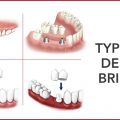The Pros and Cons of Chewing Gum

However, it has many haters too. Is it a bad or a good habit? It depends on how and when you do it. It can become a problem, or on the contrary, give you some benefits.
The tradition of chewing stuff isn’t something new. It goes back many centuries. People chewed tar from trees and wax to clean their mouths from food leftovers and make the smell of their breath more pleasant. Chewing gum as we know it appeared only in the 19th century when the chemical industry started actively working with rubber. Since then, chewing gum became a popular product.
Pros of Chewing Gum
Let’s start with the benefits you can get from chewing gum. If you do it right, it can become not only enjoyable but also beneficial.
It helps to clean your teeth and maintain a fresh breath
The easiest way to cope with bad breath is to chew gum. It also helps you clean your teeth because chewing boost the salivation in your mouth. Saliva is our best natural cleanser that washes the food leftovers off your teeth and kills bacteria.
It gives your gums and jaws a good workout
Chewing gum is like a workout for your mouth. It provides better blood circulation that helps to keep your gums healthy. Active chewing strengthens your teeth, gums, and jaws. It’s a good substitute for hard foods that doesn’t damage the enamel.
It helps you digest food
Chewing gum boosts the production of stomach acid. Chew a piece of gum before meals, and it will get your stomach prepared. But avoid chewing it without a plan to eat soon – if the acid won’t have anything to digest, it will burn your stomach inside and cause gastritis.
Cons of Chewing Gum
It may also cause harm if you’re doing it wrong. Avoiding these mistakes will give you only benefit from chewing it.
Chewing it too long
If you chew gum too long, the stomach acid starts building. It’s ok if you are going to eat, but if not, it will provoke the development of gastrointestinal diseases. 15 minutes is enough to chew without harm to your health. For children, chewing gum all day is dangerous because it provokes the development of malocclusion.
A danger for your implants
If you have crowns or dental implants, be careful with chewing gum. In a long-term perspective, this process creates a risk of a crown or dental implants problems and even failure. Constant chewing shatters them and gradually makes them mobile.
Hypersalivation
We have already mentioned that chewing gum boosts the production of saliva in your mouth. Enough saliva is good for your oral health, but an excess is not. Too much saliva interferes with the normal bacterial balance in the mouth and causes inflammation.
Contamination and infection
Even if you aren’t fond of chewing gum too much, it can bring harm not only to you but to others. Left elsewhere, it contaminates the surrounding environment, spoils goods and even transfers the infection from your mouth to people who may touch it. Is not only important how you chew it, but also what you do with it afterward. Wherever you are – only throw it away in the garbage.
As you can see, if you do everything right, you can have benefits from chewing gum. Take care of yourself and stay healthy and mindful.
Other articles and publications:
Articles and publications of other companies:
- +1 (646) 270-9836
- Long Island City
- grantny.com











